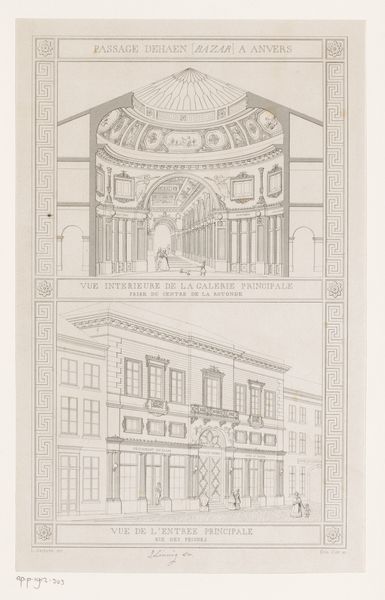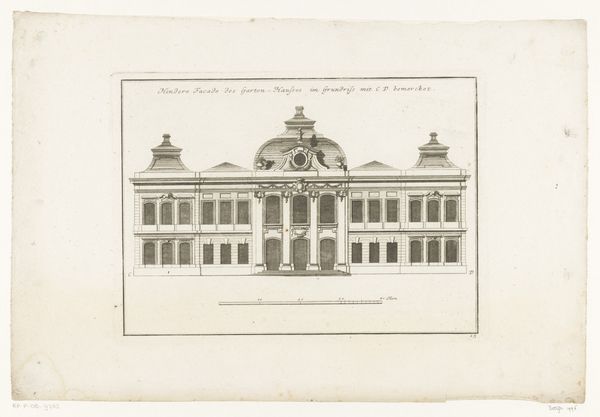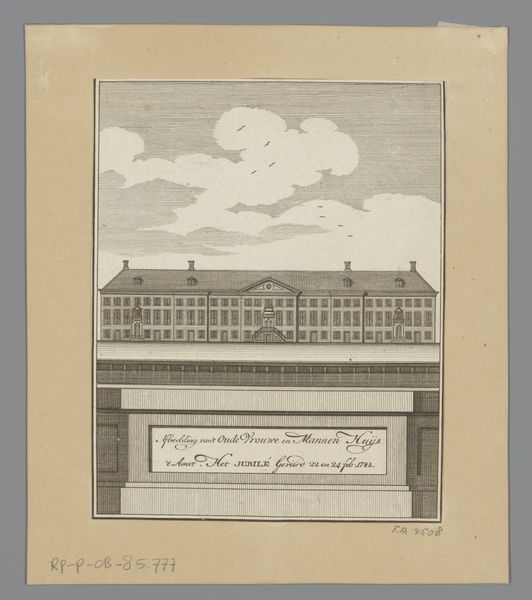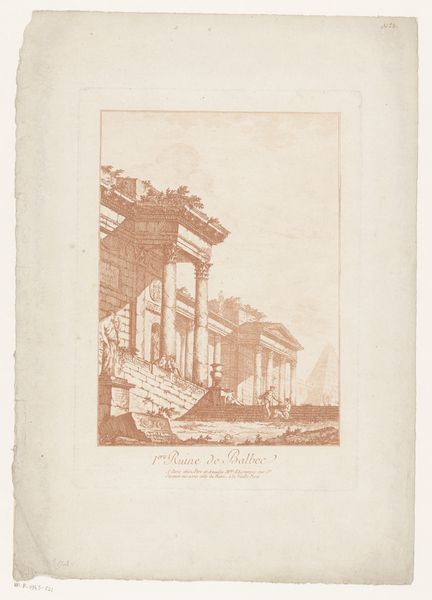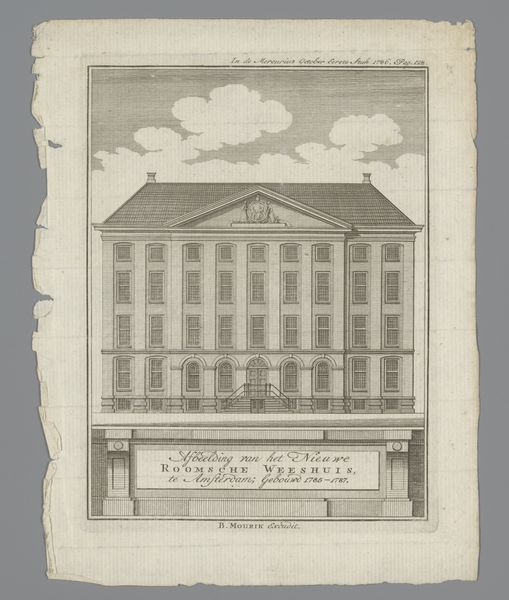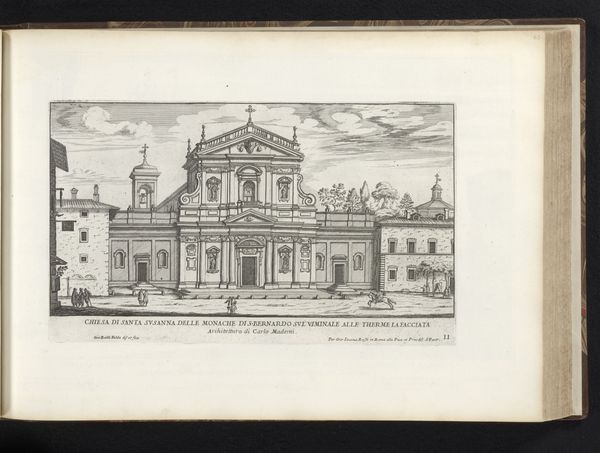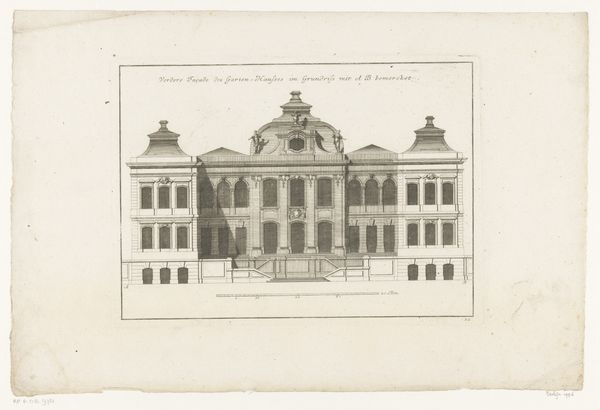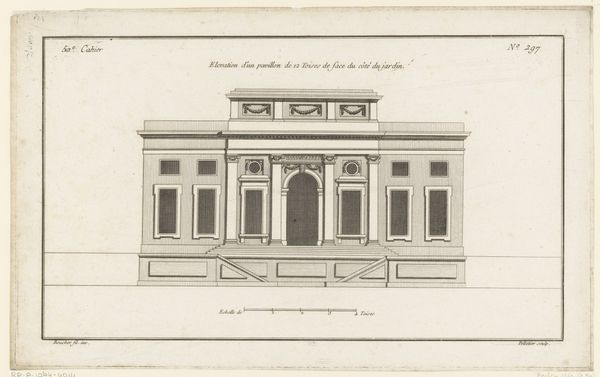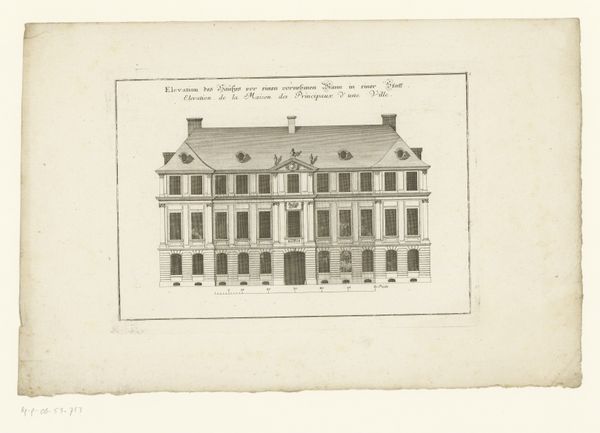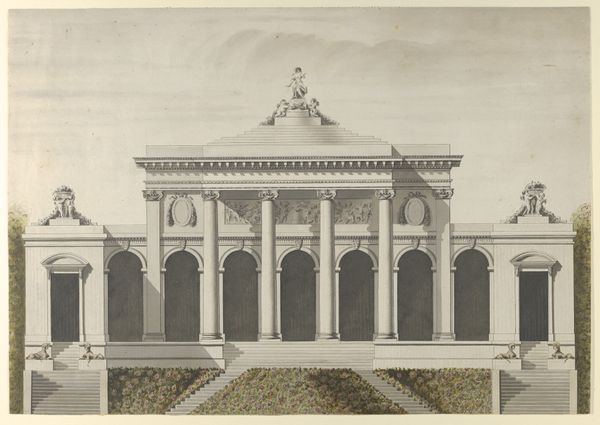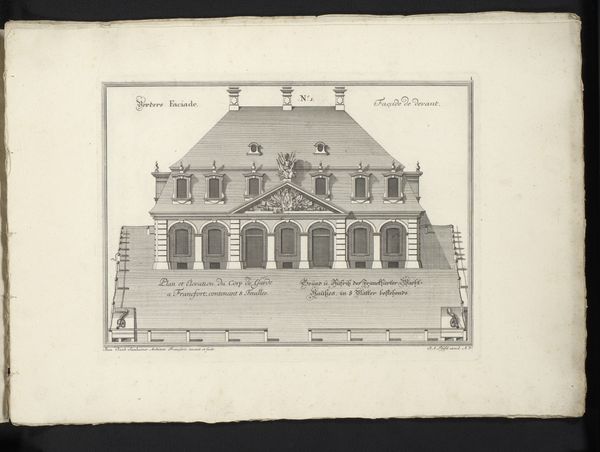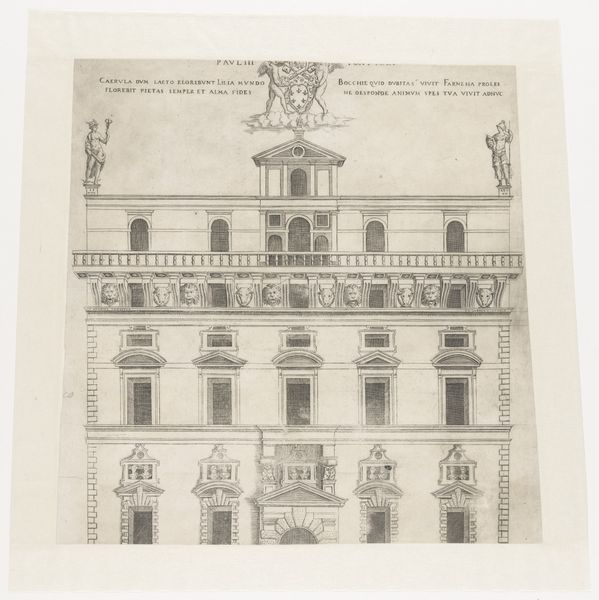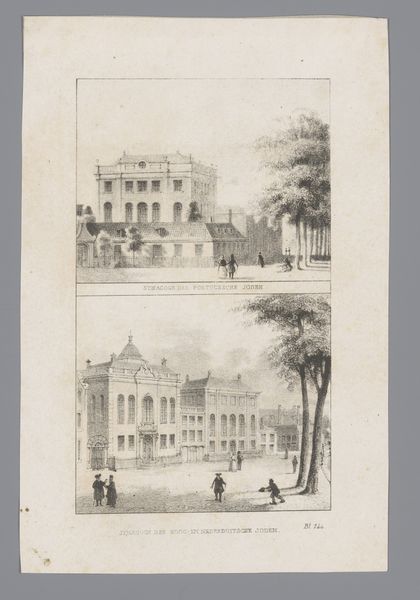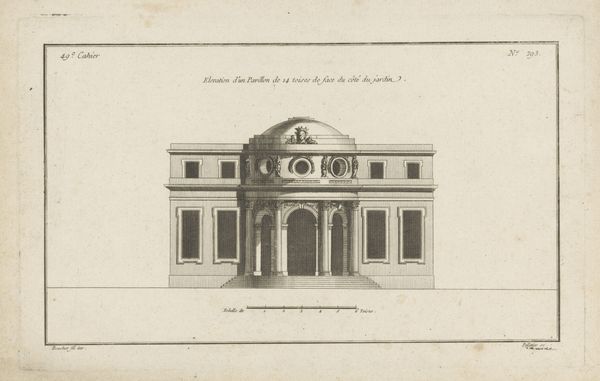
print, engraving, architecture
#
neoclacissism
# print
#
landscape
#
cityscape
#
engraving
#
architecture
Dimensions: height 190 mm, width 143 mm
Copyright: Rijks Museum: Open Domain
This print, made in 1789 by an anonymous artist, offers a glimpse into the world of Dutch wealth and social hierarchy through its depiction of Paviljoen Welgelegen. Consider the implications of an anonymous artist capturing the grandeur of a wealthy man's pavilion. It speaks to a society deeply stratified by class, where the elite could commission such tributes, and the laboring class remained largely unseen and unacknowledged. The pavilion itself, commissioned by Henry Hope, a wealthy banker, symbolizes power and privilege, reflecting the economic disparities of the late 18th century. The meticulously detailed architecture contrasts sharply with the faceless figures populating the foreground, emphasizing a world where some individuals were deemed more worthy of memorialization than others. How does this visual hierarchy shape our understanding of history and the stories we choose to tell? The print invites us to reflect on the emotional weight of exclusion and the power dynamics inherent in representation.
Comments
No comments
Be the first to comment and join the conversation on the ultimate creative platform.
